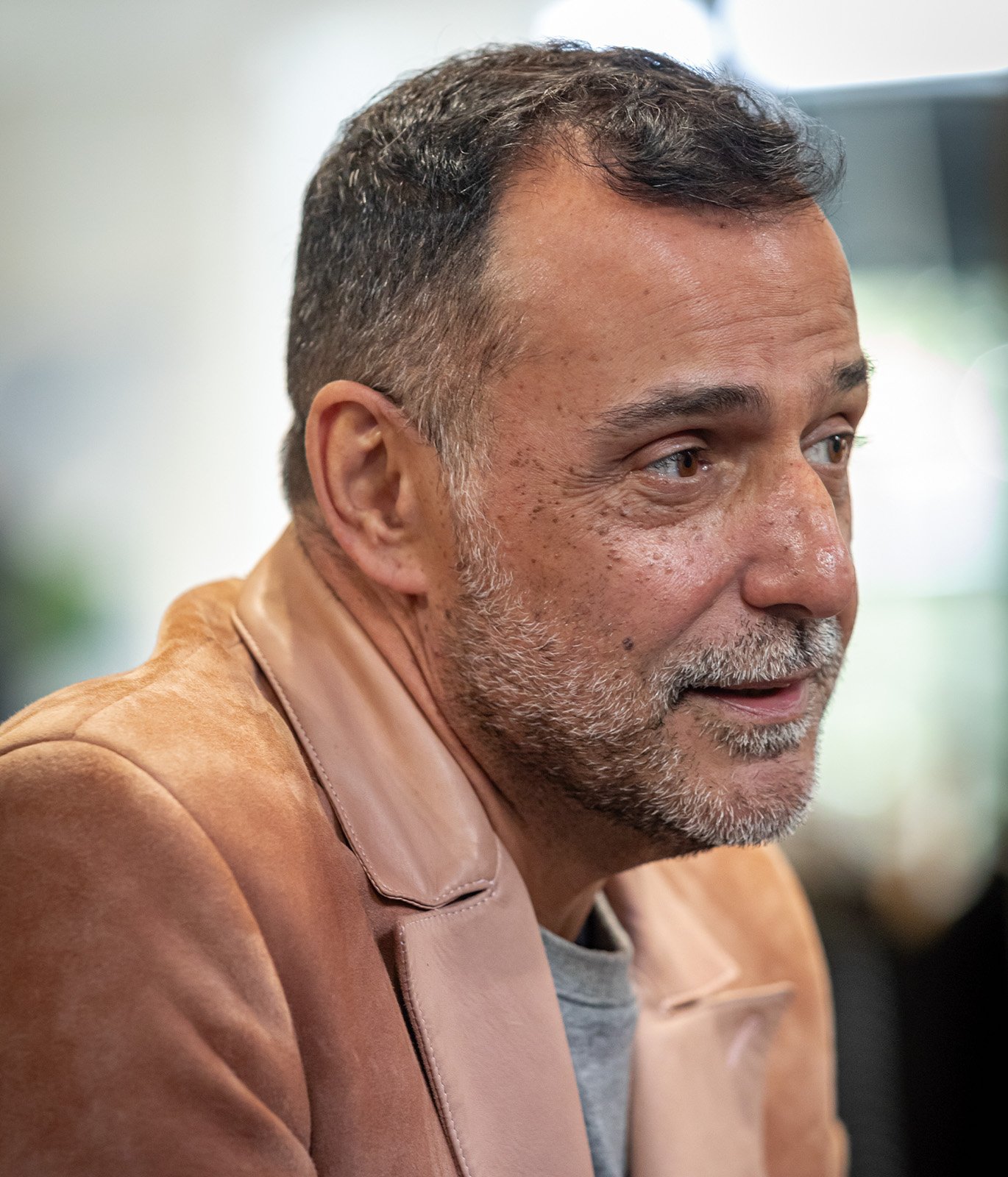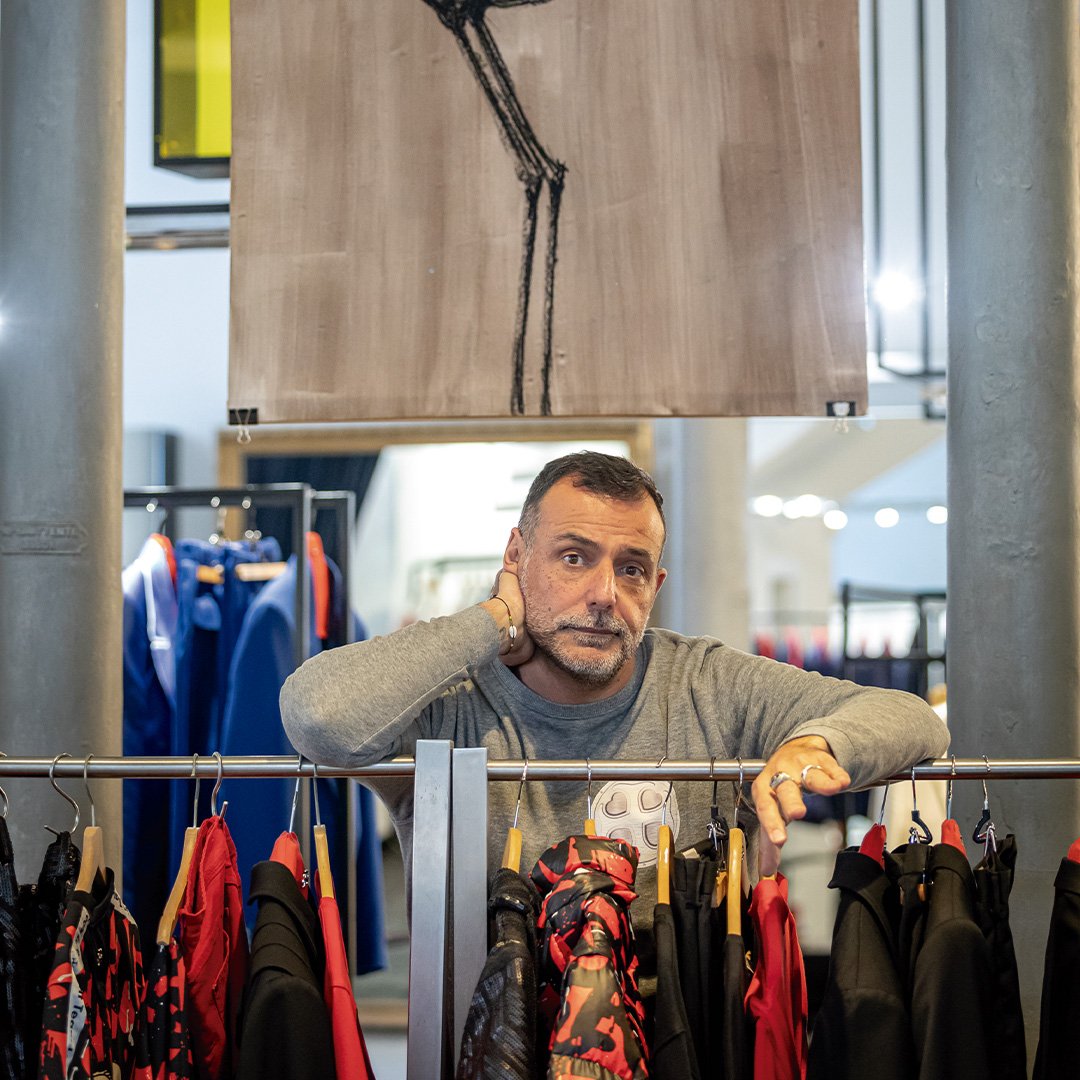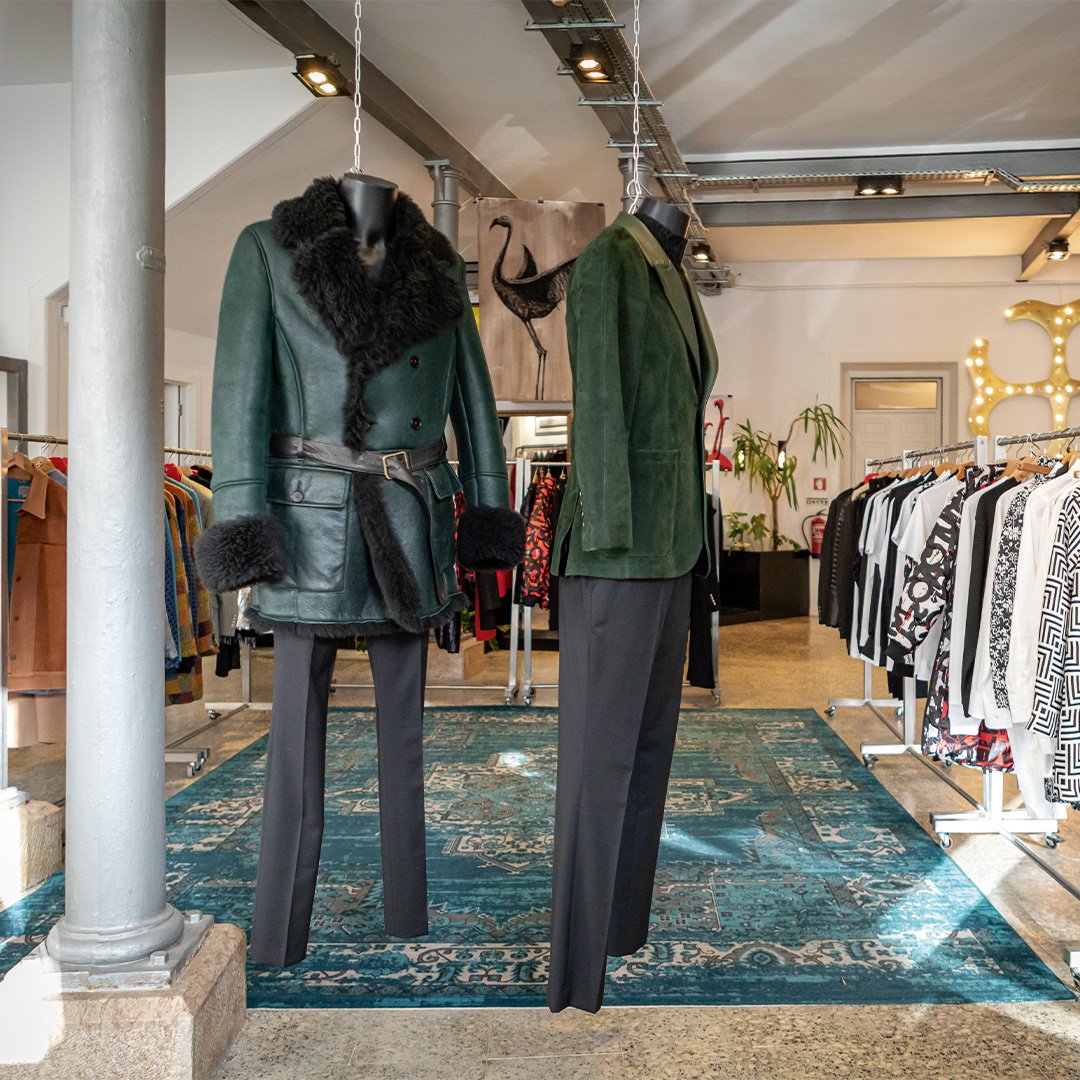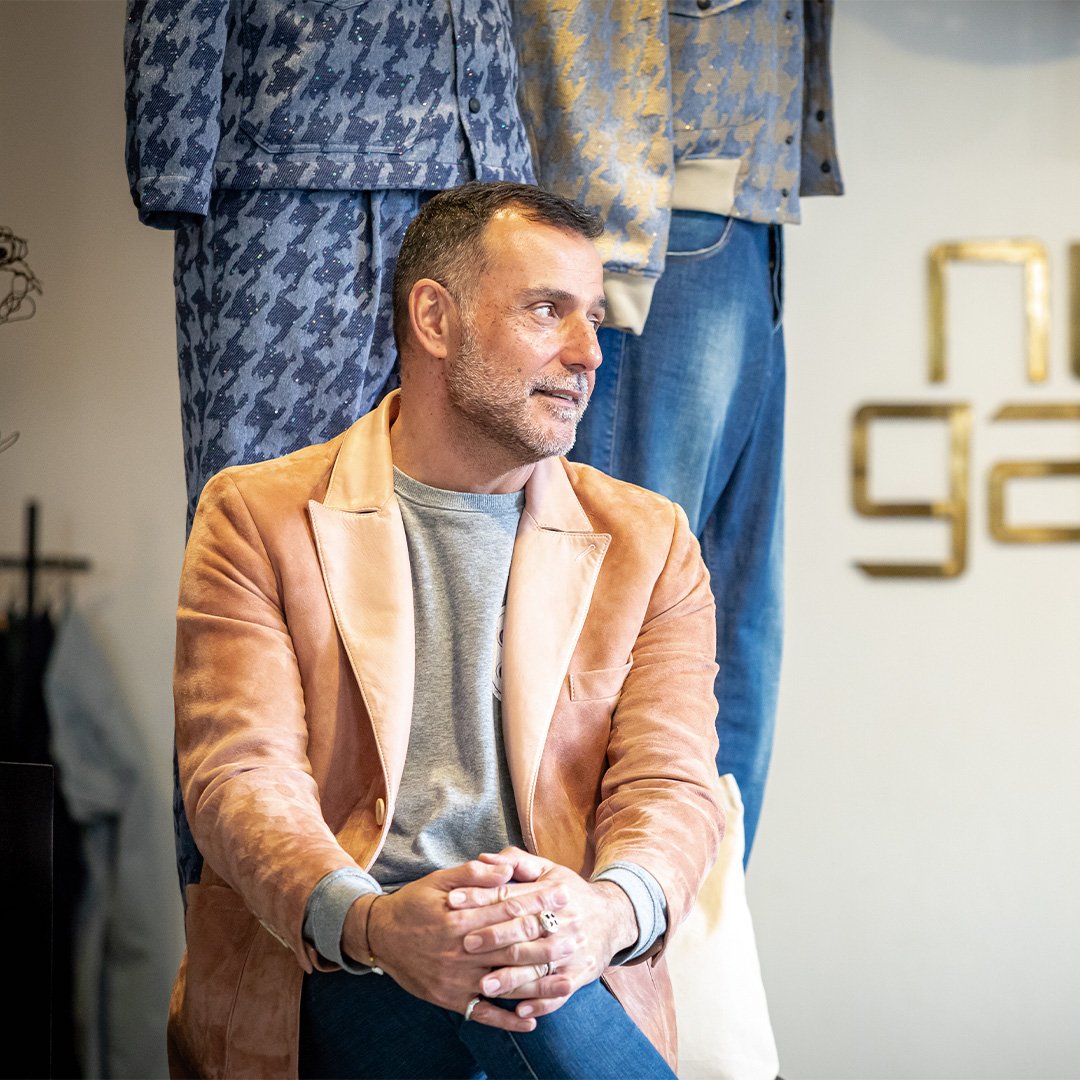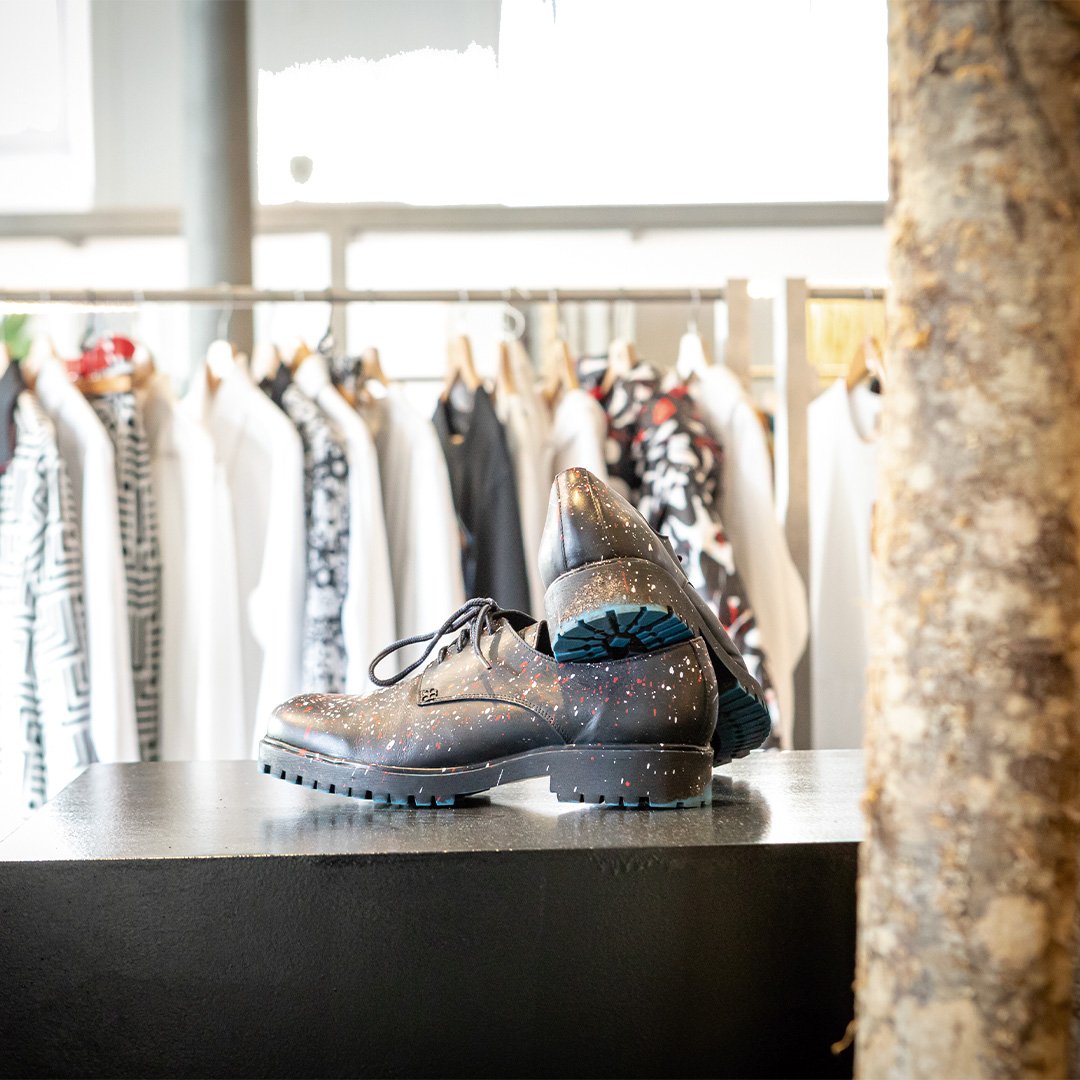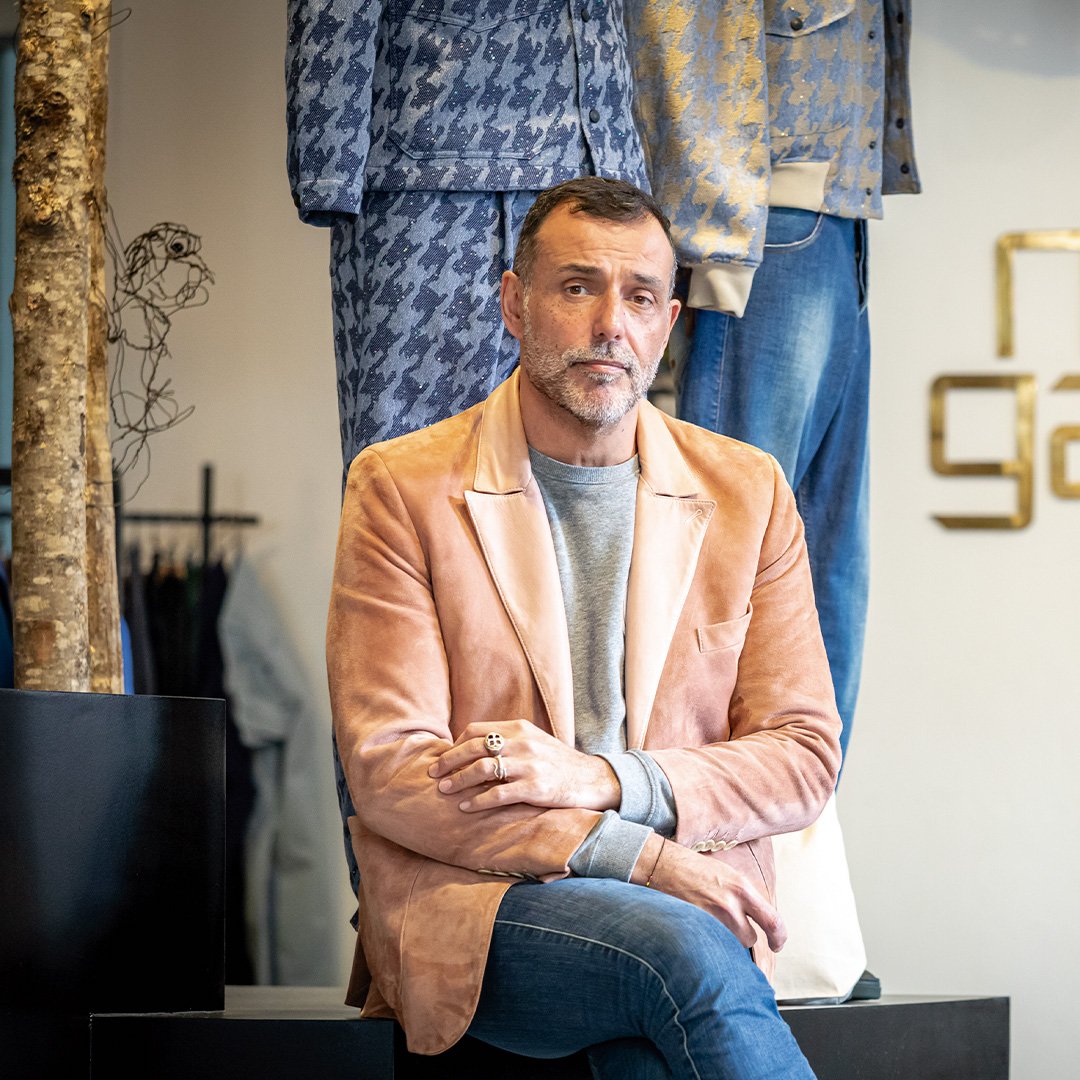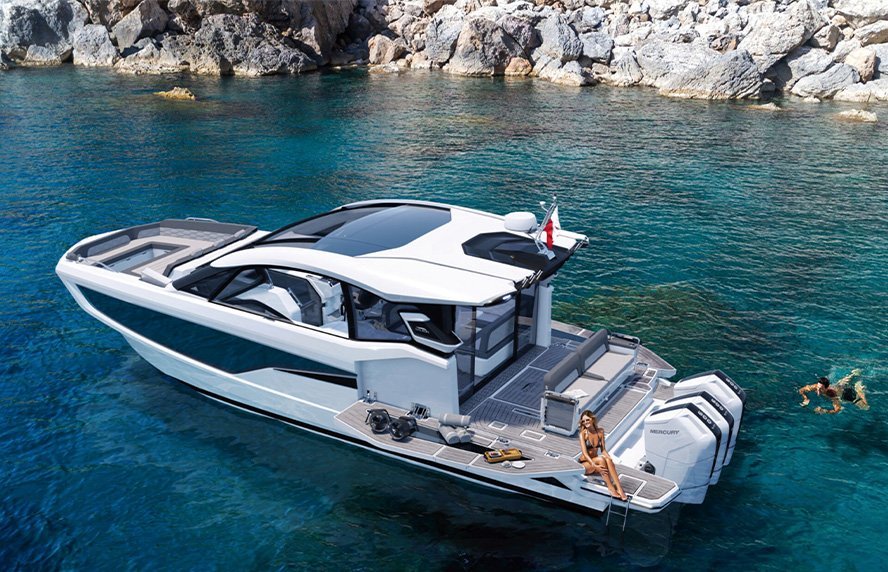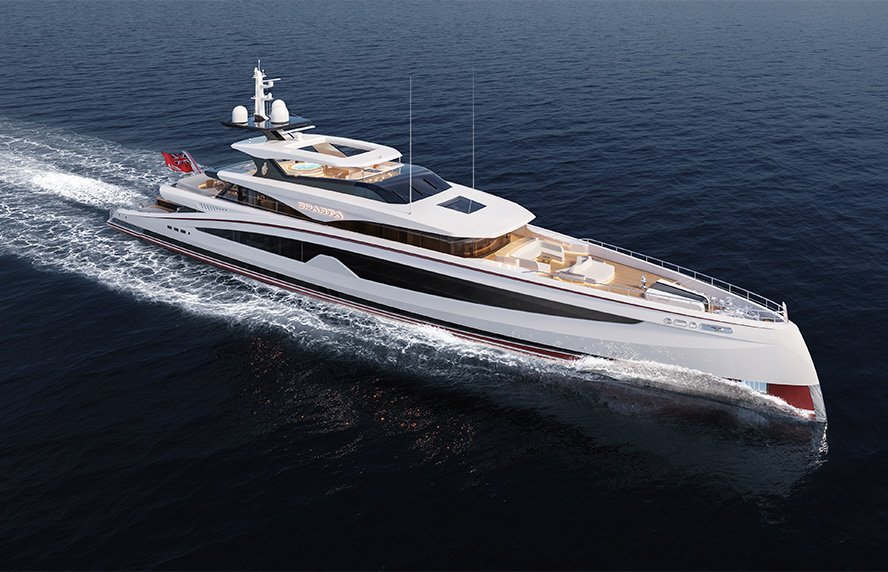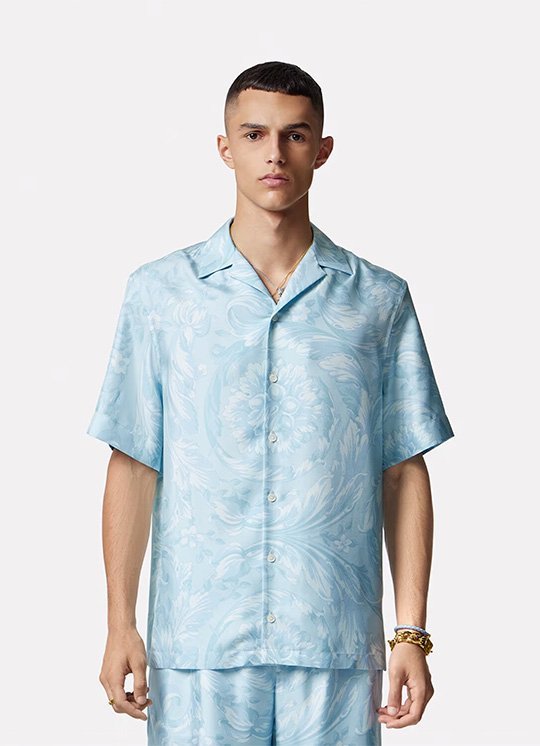You hinted that your destiny might have been architecture, but you ended up working in fashion. How did this passion come about?
It comes from the fact that I went from being a "normal” sized kid to suddenly being a monster truck. At the time, there were no clothes for tall people, in fact, finding a size 43 shoe was a miracle. The trousers and all the tops were too short, nothing fit. I remember that when someone went out of town, they would try to find clothes for me, until there was the possibility of having clothes made to measure. When I realised that it was possible to choose the fabric, colour and pattern, I understood that it would be up to me to choose what I wanted for myself. I began to discover and get involved in this world, with the added advantage that I could sketch from a young age, and with great ease.
Do you think that the way your parents dressed you at the time influenced the way you understood fashion later on?
No. I was greatly influenced by my family, I have a very special family on many levels. I grew up with the book Pelo Sonho é que Vamos (Through the Dream Go We) on my bedside table. I grew up surrounded by Grandma Bina’s Torte de Azeitão roll cakes. Among good, healthy people. My parents loved each other, they were madly in love with each other all their lives. So, in a way, I consider myself blessed and that clearly left its mark on me. I admit that getting the "upper hand” was never an easy task. It’s not that I was rebellious as a teenager, but I knew what I wanted and I didn’t like being told that the world was square. For me, the world was the entire universe and I wanted to discover it. Being forced to belong to hermetic, closed things with obligatory meanings was something I never liked. I remember that, at the time, my father loved history, so he would tell me fascinating stories. When I was out of his sight, I would take a box and make a horse out of it, a boat, a spaceship, whatever inspired me... There were lots of clothes in the attic for me to dress up in – uniforms, bullfighters’ outfits, things of all kinds and shapes – which also fuelled my imagination. I remember stealing those wooden sticks from my mum’s clotheslines to make swords and axes. I also held funerals for animals. I’d bury the sparrows inside the plant containers with pieces of cloth so they wouldn’t "die” of cold, I’d make a cross for them and give them a name. Once, my father was going to buy some orange trees and asked me if I wanted to go with him. I went with him and when we got there, there was a man selling a little white goat on a red cat’s lead. As I didn’t have any money, I couldn’t take it home with me. However, I went home and went to my piggy bank to count what I had. My godmother helped me with the remaining amount and I went to buy the goat. The man selling it found the situation so funny that he gifted me the animal. The goat went from baby to giant in the space of a few months. Then one night I went with my brothers to the typical ‘garage parties’. We went in a friend’s Volkswagen, but they wouldn’t let me take the goat inside. When we got back to the car, the goat had eaten almost the entire car. It bloated, its stomach burst and it died. I was very upset. I decided to have a funeral for it, not least because it was a very special being in my life. So, I persuaded my father to join the "ceremony”, even though it had to happen in the middle of the night (so no-one would see) and without a priest.
You were born in Azeitão, studied fashion in Oporto and have spent most of your career in the north of the country. The Nuno Gama atelier is now located in the capital. Where does your heart lie in Oporto or Lisbon?
A good question. My heart is where I’m happy, and I’m happy designing collections and spending time with clients.
But it is the North that inspires you?
I don’t belong to anything or anyone. I’ve been in the North for 28 years... In a way, half my heart is Northern, but I’m not tied to that. That part of my life I see as a passage way, now I’m in another one. I can be here today, but tomorrow I might not. Today I can be inspired by Lisbon and tomorrow by Viana. As a matter of fact, I’m currently working on a collection that explores the capital’s light and incorporates elements from Viana, but which are also Japanese at the same time. The fun of it, and at least that’s what entertains me, is the way we cook various ingredients and combine them for a different result.
«I don’t belong to anything or anyone»
